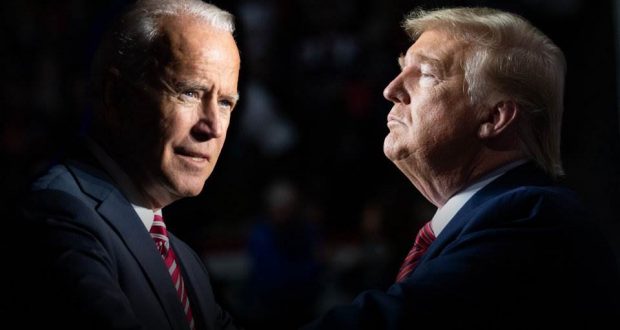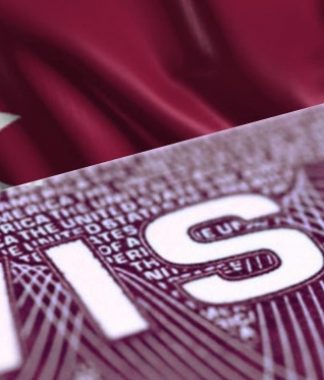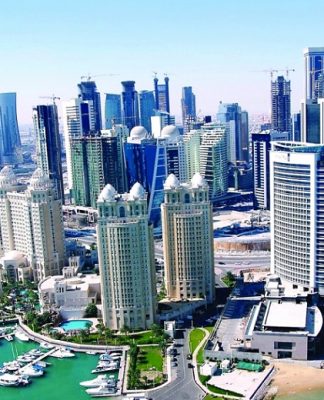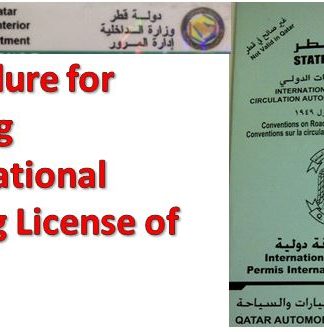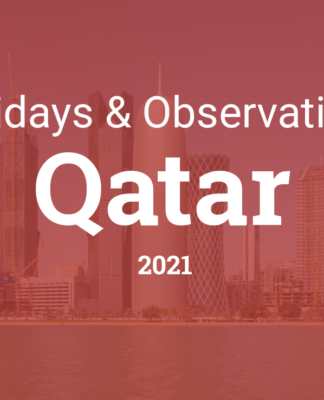For more than 3 years, the Gulf region has witnessed a major crisis, since Saudi Arabia, the Emirates, Bahrain and Egypt decided to impose a land, sea and air blockade on Qatar, in June 2017, amid false allegations and allegations against Qatar.
The siege began its first dramatic events during Donald Trump’s visit to Saudi Arabia on May 21, and Trump gave the siege countries “public support at the beginning until his administration made it clear to him that Qatar is an ally of his country and that Al Udeid base is important to America,” according to the description of the report of the security affairs editor for the “BBC” website Frank Gardner on November 12, 2020.
Also, statements by US National Security Adviser Robert O’Brien about the Gulf crisis, in which he said: “We want to settle the Gulf conflict” have sparked speculation about the Trump administration’s prospects for resolving the crisis between the quartet of blockading countries and Qatar before leaving the White House on January 20, 2021.
The 70-day chance
, O’Brien, told the editor of the American “The Hill”, Steve Clemons, at the Global Security Forum on November 16, 2020: “It is possible to achieve the step of opening the airspace for Qatari aviation with the Gulf states during the remaining 70 days of Trump’s presidency (shrunk to less than two months)”.
The American official affirmed that “the people of the Gulf are cousins, and Trump has made extensive contacts to resolve the Gulf crisis and lift the blockade on Qatar. He also expressed his wish to see Qatari planes cross the Saudi and Emirati airspace before leaving office.”
The newspaper “The Hill”, issued from Washington, pointed to the importance of Qatar to America, stressing that it “maintains strong relations with Doha, which hosts the US Central Command at Al Udeid Air Base.”
That statement prompted observers, including the director of the Eastern Mediterranean Forum for Political and Strategic Studies, Muhammad Hamed, to say: “Trump will end the Gulf crisis as he started it in order not to give a winning point for the new administration of President-elect Joe Biden.”
On the same day that the US National Security Adviser said about the Gulf crisis, His Excellency Sheikh Mohammed bin Abdulrahman Al Thani, Deputy Prime Minister and Minister of Foreign Affairs, spoke about the presence of great momentum from the Trump administration, on the matter.
He stressed that Qatar “has been open to dialogue from the beginning, and we have a good intention to have a constructive dialogue, and there is no winner or loser from the crisis.”
His Excellency said during the Global Security Forum, which was launched in Doha on November 16, 2020: “Qatar has not carried out any hostile actions against the blockading countries,” and that “all the allegations and allegations that have been directed at it and that caused the blockade are false and false.”
What about the Biden administration?
On the other hand, and in contrast to the Trump administration’s talk of deciphering the Gulf crisis, the UAE faces great concerns from the administration of President-elect Biden, despite Abu Dhabi’s decision to sign an agreement with the Israeli entity, sponsored by the United States in September 2020, and the billions of deals it concluded with Tel Aviv.
Indeed, Democratic and Republican members of the US Senate sought to prevent Trump from selling weapons to the UAE, worth $ 23 billion, including F-35s, as the members confirmed that they would submit 4 separate legislation to reject the deal, because of their objection to Abu Dhabi’s role in killing civilians in Yemen.
In a news analysis by Security Affairs Editor Frank Gardner for the BCC website on November 12, 2020, he said: “It is expected that President-elect Biden’s administration will push towards healing the Gulf rift, whose continuation is not in the interest of Washington or the Gulf states.”
But … will Trump succeed in order not to give Biden this opportunity in the future?














